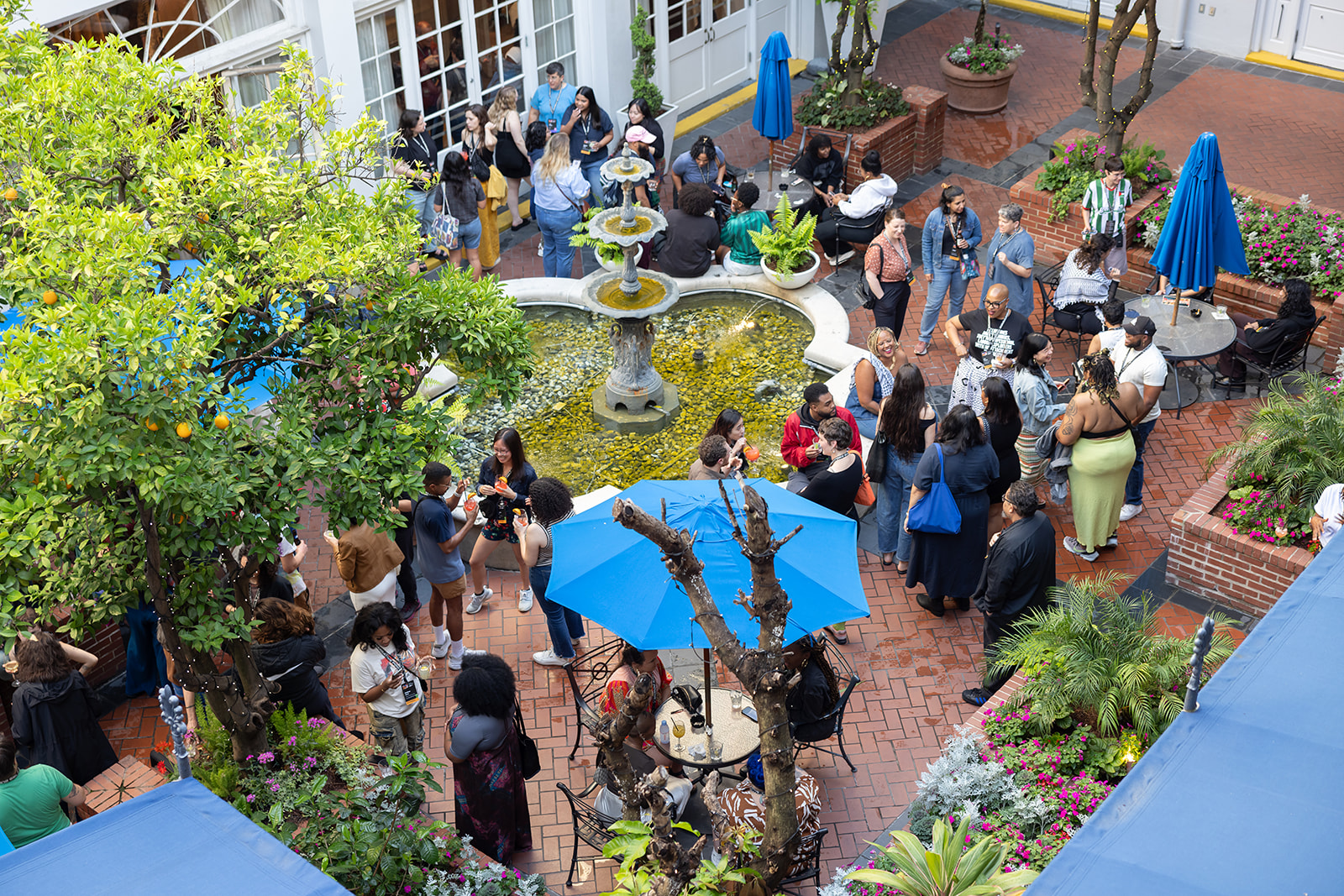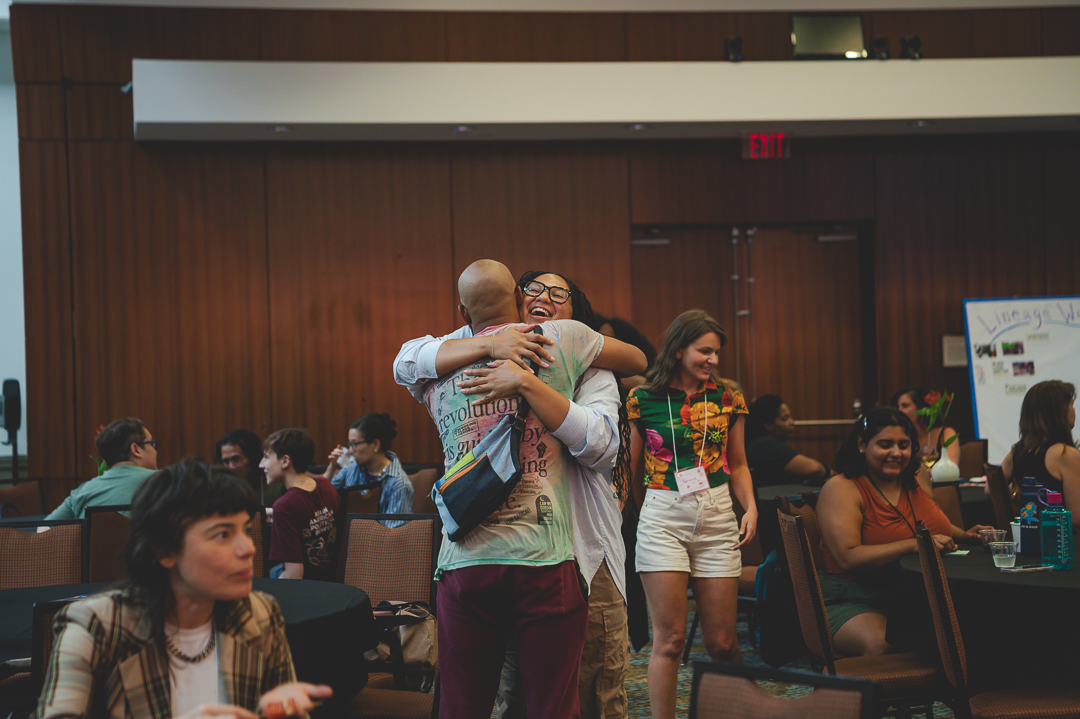Here at ReFrame we take a small pause every quarter, check our compass, and adjust our heading to stay the course. At the end of the year, we take a longer pause to evaluate where we’ve been and set direction for the next year. Below is a summary of the activities and impacts of ReFrame’s work in 2022. Of course, we do not do this work alone, we are moving with others to build narrative power and bend the arc of justice towards justice and liberation.
At the end of 2021/beginning of 2022 we launched our first ever Narrative Predictions. The predictions were an experiment in producing a narrative forecast for wide use across social justice organizations and movements. An amazing thing happened—y’all used it! We heard from leaders and strategists, from national networks to local organizations and philanthropic institutions, who used the predictions to ground their 2022 strategic analysis, goal setting, and planning. You can still revisit the predictions and see how well we did.
Mark your calendars: we will put out 2023 narrative predictions in January.
While the 2022 Narrative Predictions made their rounds we were hard at work on the second half of a Narrative Power Fellowship with power-building and civic engagement organizations in the Pacific Northwest. We saw growth in skills, alignment, and strategy acumen from participants like Coalition of Communities of Color in Portland, Oregon. We developed this fellowship in partnership with the movement-minded folks at Northwest Health Foundation as a part of their long-term work building progressive organizing and civic engagement infrastructure across Oregon and Washington. We built the fellowship based on ReFrame’s cornerstone mentorship program and the Gen Now Fellowship we ran in partnership with Power California from 2019 to 2021.

[alt="Close up of two people smiling indoors next to a sign with a quote by Mayor Bud Clark"]
Speaking of the Gen Now Fellowship, we published a piece in Nonprofit Quarterly in May, Losing Forward: Lessons from Organizing for Narrative Change, which placed the fellowship in the context of a decades-long fight to shift deep narratives about taxation and governance in California and the integration of ballot initiatives and voter education. It highlights the indomitable Estef Solano, who started the fellowship as a new comms staff person at Inner City Struggle and is now the Narrative and Communications Director with a team under her.

[alt= "An online article titled 'Losing Forward: Lessons from Organizing for Narrative Change' published in Non Profit Quarterly"]
In the early summer, we made a handful of phone calls to strategists across the country grounded in power-building organizing and leading scaled narrative fights. We invited them to join ReFrame’s inaugural Senior Narrative Power Cohort, a nine-month program launched in August for senior strategists to get peer-to-peer support. The program includes 1:1 coaching, early and exclusive access to in-motion narrative research, and a facilitated and resourced container for collaboration across geography and issue. Of the dozen people we invited to join, 11 answered the call.

[alt="Group of communicators and strategists taking a photo together"]
Meanwhile, we were also doing work we don’t often talk about: working with partners to move the philanthropic sector to invest field-wide in narrative power building. We held workshops, presentations, and panel discussions with philanthropic decision-makers who have an impact on the racial, economic, and gender justice movements. Aligned with this work, we put our money where our mouth is and moved $60,000 to each participant in the Senior Cohort to apply to an existing or new narrative project.
In the first half of the year, we also continued our work on disinformation, leading several trainings for the Disinformation Defense League and continuing our own research and tracking as an integrated piece of understanding the larger narrative climate.
August saw our dynamic narrative research and action team at the The Women’s Convention in Texas, where we led Narrative Power 101 workshops to packed rooms of grassroots activists. The team also led story gathering and landscaping workshops on QAnon and how the conspiracy theory has directly broken apart families and relationships and been an on-ramp to right-wing organizing. These workshops were a small part of our QAnon narrative research and deprogramming work - a multiyear project in partnership with Women’s March to counter-organize right-wing recruitment across the country. As a part of this work, we’ve built a network map that identifies the various networks that move QAnon theories—something we will share publicly in 2023.

[alt="Two people giving a presentation titled 'Welcome to QAnon Network Map: Down the Rabbit Hole Learning Session"]
In October, in partnership with RadComms, we held the first Narrative Power Summit, which brought together more than 400 organizers, leaders, strategists, and cultural workers across issue and geography for three days of in-person and virtual plenaries, workshops, panels, fireside chats, and relationship-building spaces. Given the ongoing pandemic, we took the decision to convene in-person seriously, establishing safety protocols and choosing a location where many events could take place outdoors. Beyond the deep connections and amazing lessons learned, many attendees shared that it was the first in-person convening they felt comfortable to attend because of the COVID mitigation standards we set for participants.

[alt="Hundreds of people who convened for the '22 Narrative Power Summit posing in front of a harbour with their hands in the air"]
We also launched our first experiment in “scaled-training” in October. Drawing on our experience hosting trainings for thousands of people in partnership with the Movement for Black Lives during the summer 2020 uprisings, we held a Narrative Power 101 training with more than 800 people from 45 states and 15 countries registered in advance. In the end, well over 400 participants participated in the training. We will take lessons from this experiment and bring more scaled training in 2023.
We also launched another experiment in October, the Signals In the Noise Beta Test. This test iterated on years of work by our dynamic research and action team to create strategic insights for use by organizers and activists. Over the course of several weeks, we used the research from our combatting Q partnership with the Women’s March as the basis for compelling content to spread the findings and engage in conversations beyond the choir. We moved beyond simply creating and distributing content and proactively searched out feedback through surveys, focus groups, and scouring comments and engagement. Not only did we get good organic reach and engagement, we learned a lot of lessons that we will bring to future content creation projects that bridge narrative research and action.
.png)
[alt="A person with dark hair and glasses on tik tok holding up five fingers"]
In addition to our work in the United States, we also dipped our toes in the international narrative space. From participatory research on the narrative infrastructure in Latin America to collaborating with strategists from across the world to identify and resource exploratory narrative experiments, we are building international relationships and networks that will come into play in the coming years.
Next week our staff team will retreat into the mountains of New Mexico where we will pull out lessons from 2022, plot our course for 2023, and celebrate how far we have come. I hope you find similar time with your teams, with your community, and with your families.
Onward to 2023!

.jpeg)







































.png)
%20(1).png)




























